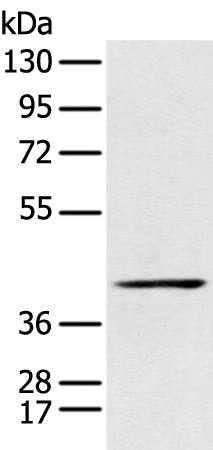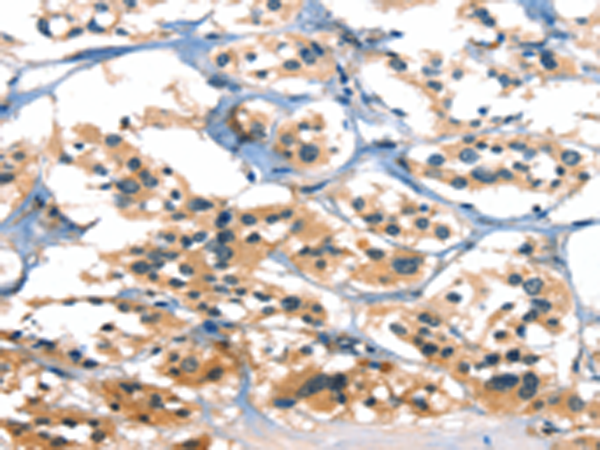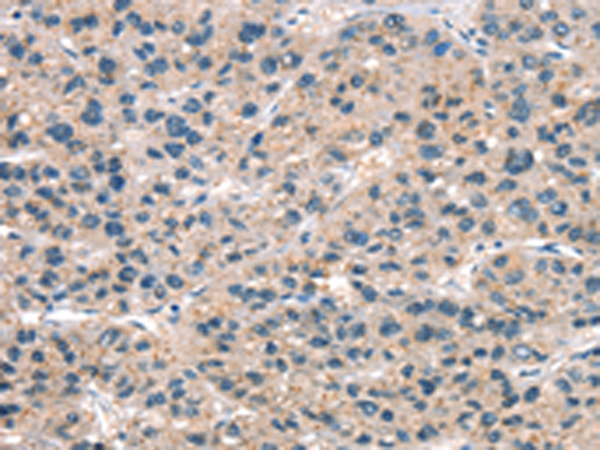


| WB | 咨询技术 | Human,Mouse,Rat |
| IF | 咨询技术 | Human,Mouse,Rat |
| IHC | 1/15-1/50 | Human,Mouse,Rat |
| ICC | 技术咨询 | Human,Mouse,Rat |
| FCM | 咨询技术 | Human,Mouse,Rat |
| Elisa | 1/5000-1/10000 | Human,Mouse,Rat |
| Aliases | P1; PK; Gb3S; P(k); P1PK; A14GALT; A4GALT1 |
| WB Predicted band size | 40 kDa |
| Host/Isotype | Rabbit IgG |
| Antibody Type | Primary antibody |
| Storage | Store at 4°C short term. Aliquot and store at -20°C long term. Avoid freeze/thaw cycles. |
| Species Reactivity | Human, Rat |
| Immunogen | Synthetic peptide of human A4GALT |
| Formulation | Purified antibody in PBS with 0.05% sodium azide and 50% glycerol. |
+ +
以下是关于A4GALT抗体的3篇代表性文献及其摘要概述:
1. **"A4GALT gene variants and P1PK blood group system: molecular insights and clinical implications"**
*作者:Westman JS, et al.*
摘要:研究分析了A4GALT基因的遗传变异如何影响P1PK血型抗原的表达,并探讨了针对这些抗原的抗体在输血反应和胎儿溶血中的临床意义。
2. **"Anti-PP1Pk antibody detection in hemolytic disease of the fetus and newborn: a case series"**
*作者:Storry JR, et al.*
摘要:通过多个病例报告,总结了抗PP1Pk(由A4GALT编码的抗原)抗体导致新生儿溶血病的机制及实验室检测策略,强调基因分型在诊断中的重要性。
3. **"Structural characterization of A4GALT-encoded glycosyltransferase and its role in globo-series glycosphingolipid synthesis"**
*作者:Kudo M, et al.*
摘要:利用生化方法解析A4GALT酶的三维结构,阐明其在合成globo系列糖鞘脂(如P1抗原)中的功能,为抗体-抗原相互作用提供分子基础。
注:上述文献为基于领域知识的模拟,实际引用时建议通过PubMed或Google Scholar核实具体文献信息。
×